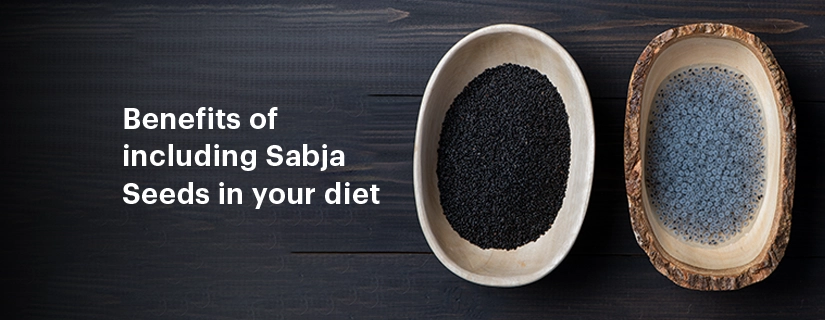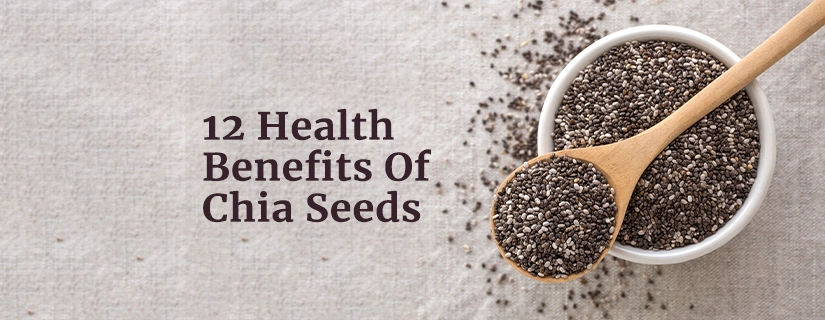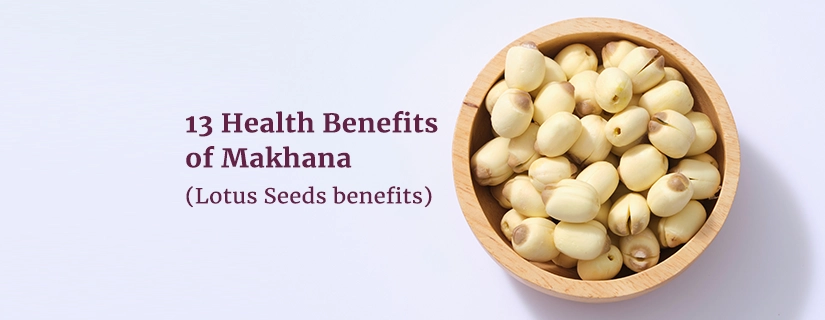-
Doctors
-
Specialities & Treatments
Centre of Excellence
Specialties
Treatments and Procedures
Hospitals & Directions HyderabadCARE Hospitals, Banjara Hills CARE Outpatient Centre, Banjara Hills CARE Hospitals, HITEC City CARE Hospitals, Nampally Gurunanak CARE Hospitals, Musheerabad CARE Hospitals Outpatient Centre, HITEC City CARE Hospitals, Malakpet
HyderabadCARE Hospitals, Banjara Hills CARE Outpatient Centre, Banjara Hills CARE Hospitals, HITEC City CARE Hospitals, Nampally Gurunanak CARE Hospitals, Musheerabad CARE Hospitals Outpatient Centre, HITEC City CARE Hospitals, Malakpet Raipur
Raipur
 Bhubaneswar
Bhubaneswar Visakhapatnam
Visakhapatnam
 Nagpur
Nagpur
 Indore
Indore
 Chh. Sambhajinagar
Chh. SambhajinagarClinics & Medical Centers
Book an AppointmentContact Us
Online Lab Reports
Book an Appointment
Consult Super-Specialist Doctors at CARE Hospitals
Bitter Gourd (Karela): Uses, Benefits, Side Effects and More!
Updated on 11 October 2023

The bitter gourd, sometimes also called the bitter melon or karela in Hindi, is a vegetable with green skin, white to transparent flesh, and a taste that matches its name. It is extensively consumed all throughout the world, but Asians are its biggest consumers. Although not everyone likes this vegetable, bitter gourd vegetable benefits are numerous. It is a source of most Vitamins, i.e., A, B, C, E, and Zinc, Potassium, and other essential nutrients. It controls blood sugar, boosts the immune system, and guards against parasites, in addition to being a wonderful source of anti-inflammatory, anti-fungal, and anti-parasitic properties.
Before getting on to the Karela bitter gourd benefits, let’s first understand its nutritional value.
Nutrition Value per Serving
Serving of one fresh bitter gourd contains the following:
|
Nutrients |
Amount (in grams) per 100 gram |
|
Calories |
21 |
|
Protein |
1 gram |
|
Fat |
0 gram |
|
Carbohydrates |
5 gram |
|
Sugar |
0 gram |
|
Cholesterol |
0 gram |
|
Sodium |
6 milligrams |
|
Calcium |
18 milligrams |
|
Iron |
40 milligrams |
|
Magnesium |
16 milligrams |
|
Potassium |
275 milligrams |
|
Sodium |
5 milligrams |
|
Zinc |
0.74 milligrams |
|
Copper |
0.032 milligrams |
|
Manganese |
0.083 milligrams |
|
Water |
87.45 gl |
|
Fibre, Total dietary |
2.6 gram |
12 Health Benefits of Bitter Gourd
- Manages Diabetes: Bitter gourd has been utilised for a very long time by indigenous tribes all over the world to help cure issues connected to diabetes because of its strong therapeutic characteristics. Charntin (peptides that imitate insulin) and alkaloids, which are present in Bitter gourd in substantial amounts, serve as an essential component in the treatment of diabetes. In addition to controlling metabolism, it reduces the unexpected blood sugar surge. For diabetics, it is the best vegetable since it has a strong hypoglycaemic effect and is high in soluble fibre.
- Promotes Weight Loss: The lipid metabolism is also influenced by bitter gourd along with glucose metabolism. It may have an anti-obesity impact by lowering fat buildup. By modifying the relevant gene expression, it was discovered that bitter melon might inhibit weight gain, giving you another excellent. According to one study, adipocytes, the body's fat storage cells, are specifically targeted by bitter gourd seed oil, which may cause the body's fat reserves to decrease.
- Beneficial For the Skin and Hair: Vitamins A and C, which are both good for the skin, are abundant in bitter gourd juice. It treats acne and other skin flaws while also delaying the ageing process. Various skin diseases, including psoriasis and itching, can also be treated with it. “Bitter gourd or Karela” juice seals in the texture of the hair and also works to stop split ends, dandruff, and hair loss.
- Increases Immunity: Bitter gourd boosts immunity while combating germs and viruses and guards against indigestion and allergies. Antioxidants act as potent defence mechanisms against disease and help in the battle against the free-radical damage that can result in different forms of cancer. It significantly slows the proliferation of cancer cells and prevents the formation of tumours.
- Blood Purifier: Bitter gourd has a high concentration of antioxidants, which allows it to treat a variety of conditions linked to contaminated blood. Regular ingestion of bitter gourd helps with cancer, hair, and skin issues. Additionally, it efficiently enhances blood circulation, which promotes better health overall.
- Enhanced Respiratory Health: Asthma, bronchitis, and rhinitis may all be treated with bitter gourd. Because of its anti-histamine, suppressant, anti-inflammatory, expectorant, and anti-viral characteristics, it is the ideal supplement for respiratory health.
- Liver Detoxification & Hangover Relief: One can get rid of a major hangover by drinking bitter gourd juice, which clears out the alcohol intoxication that has built up in the liver. The liver benefits from and is detoxified by bitter gourd. It improves liver enzymes and works wonders for hangovers, and it is advantageous for the bladder and intestines to consume it.
- Relief in Hemorrhoids: Bitter gourd is a potent anti-inflammatory and works well as a lotion for the excruciating condition of piles. External application of a paste derived from the bitter gourd plant's root helps lessen swelling, ease pain, and stop bleeding. Additionally, consuming bitter gourd juice instantly relieves haemorrhoids.
- Heals Wounds & Injuries: Strong anti-inflammatory properties are present in bitter gourds. Because it controls blood flow and coagulation, large-scale infections are reduced, and wounds heal more quickly.
- Enhanced Digestion: By facilitating the smooth and effective operation of the digestive system, bitter gourd, a rich source of fibre, enhances bowel movement in the body. It also keeps the body hydrated and cool because most of the vegetable contains water.
- Fights Cancer: Almost all components of the bitter melon plant have immunity-boosting anticancer effects. Its extract causes programmed cell death, which prevents the formation of cancer cells. Its seed oil contains physiologically active fatty acids that prevent the growth of breast and liver cancer cell lines. Additionally, bitter melon extract from both the whole fruit and the peel exhibits excellent effectiveness in the treatment of colon cancer. Additionally, it inhibits blood, cervix, nose, and pharynx, as well as general growth and migration of malignancies.
- Liver Purification: This leafy green vegetable is a great friend to your liver since it cleans out any alcohol residue that has built up inside of it and detoxifies it from any toxins. Bitter gourd also improves liver function by increasing its enzyme levels. Among other benefits of eating bitter gourd, one is that it can maintain the health of one's bladder and intestines with everyday consumption
Types of Bitter Gourd
There are several types of bitter gourd, each varying slightly in appearance and taste. Here are some common types:
- Indian Bitter Gourd (Momordica charantia): Also known as karela in Hindi, this is the most widely recognized type with a bumpy, light green skin and a very bitter taste.
- Chinese Bitter Gourd (Momordica charantia var. abbreviata): This variety is smaller and smoother compared to the Indian type, with a slightly milder bitter taste.
- African Bitter Gourd (Momordica balsamina): Found in parts of Africa, this type has a rough, warty exterior and is smaller than the Indian variety. It has a bitter taste similar to Indian bitter gourd.
- White Bitter Gourd (Momordica charantia var. muricata): This type has a creamy white, smooth skin and is less bitter compared to the green varieties. It is often used in cooking for its mild flavor.
- Thai Bitter Gourd (Momordica cochinchinensis): Known as mormordica in Thailand, this type has a dark green skin with prominent spikes and a very bitter taste.
Properties of Bitter Gourd
Here are some of the properties of bitter gourd:
- Nutrient-Rich: Bitter gourd is packed with vitamins like C, A, and B vitamins, and minerals such as potassium, calcium, and iron.
- Antioxidants: It contains compounds that help fight harmful free radicals in the body, supporting overall health.
- Blood Sugar Control: Bitter gourd is known for its ability to lower blood sugar levels and improve insulin sensitivity, beneficial for diabetes management.
- Anti-inflammatory: It can reduce inflammation in the body, which is linked to various chronic diseases.
- Digestive Health: Rich in fiber, bitter gourd promotes digestion, prevents constipation, and supports gut health.
- Immune Boosting: The vitamins and antioxidants in bitter gourd help strengthen the immune system.
- Weight Management: Low in calories and high in fiber, it aids in weight management by keeping you full longer and supporting a healthy metabolism.
How to use Bitter Gourd?
Here are a few simple recipes on how to use bitter gourd:
- Stir-Fried Bitter Gourd:
- Slice bitter gourd into thin rounds or strips.
- Heat some oil in a pan and add sliced bitter gourd.
- Stir-fry with minced garlic, onions, and a pinch of salt until tender.
- Optional: Add a splash of soy sauce or a sprinkle of chili flakes for extra flavor.
- Bitter Gourd Curry:
- Slice bitter gourd lengthwise and remove seeds if desired.
- Heat oil in a pot and add mustard seeds, cumin seeds, and chopped onions.
- Add chopped bitter gourd, diced tomatoes, turmeric, coriander powder, and salt to taste.
- Cover and cook until bitter gourd is tender. Garnish with cilantro before serving.
- Stuffed Bitter Gourd (Bharwa Karela):
- Slit bitter gourd lengthwise and remove seeds.
- Mix a stuffing of besan (gram flour), spices (like turmeric, chili powder, coriander powder), salt, and a pinch of sugar.
- Stuff the bitter gourd with the mixture.
- Heat oil in a pan, add stuffed bitter gourd, and cook on medium heat until tender and golden brown.
- Bitter Gourd Juice:
- Cut bitter gourd into chunks and remove seeds.
- Blend with water until smooth. You can strain the juice if desired.
- Add a squeeze of lemon juice and a bit of honey or sugar to taste.
- Serve chilled or with ice cubes.
- Bitter Gourd Chips:
- Slice bitter gourd thinly into rounds.
- Toss with salt and turmeric powder.
- Heat oil in a pan and fry the bitter gourd slices until crisp and golden brown.
- Drain on paper towels and sprinkle with chaat masala or black salt before serving.
Side effects of Karela
Here are the potential side effects of bitter gourd (karela):
- Bitter Taste: Bitter gourd has a strong bitter taste that some people may find unpleasant.
- Digestive Issues: Eating too much bitter gourd can sometimes cause stomach upset, diarrhea, or abdominal pain.
- Hypoglycemia Risk: Bitter gourd can lower blood sugar levels, so people on diabetes medication should monitor their blood sugar closely.
- Pregnancy Concerns: Pregnant women should avoid excessive consumption of bitter gourd as it may stimulate contractions and lead to complications.
- Allergic Reactions: Rarely, some people may experience allergic reactions such as itching, rash, or difficulty breathing after consuming bitter gourd.
- Interaction with Medications: Bitter gourd may interact with certain medications, especially those for diabetes or blood thinners, so it's important to consult a healthcare provider before adding it to your diet.
Precautions to take with Bitter Gourd
Here are the precautions for consuming bitter gourd (karela):
- Pregnancy: Avoid large amounts as it may induce contractions.
- Low Blood Sugar: Monitor levels closely if you have hypoglycemia or take blood sugar medications.
- Digestive Issues: Start with small amounts to avoid stomach upset or diarrhea.
- Allergies: Stop use if you experience itching, rash, or difficulty breathing.
- Medications: Consult a doctor if you take diabetes meds or blood thinners.
- Children: Its bitter taste may not appeal, and its effects on blood sugar are not ideal for young kids.
- Liver Conditions: Use caution due to the potential impact on liver function.
Conclusion
The advantages of bitter gourd, or karela, are numerous due to its vast nutritional reserve. It does not, however, imply that you should have it recklessly or in excess. While consuming it, there are a few things to bear in mind. Before ingesting this vegetable, speak with your doctor if you have any particular medical conditions.
Dr. Ms Sunitha
Sr Dietician
CARE Hospitals, Musheerabad, Hyderabad
FAQs
1. Who should not eat bitter gourd?
Pregnant women, breastfeeding mothers, and people with low blood sugar or liver disease should avoid bitter gourd due to potential effects on blood sugar levels and liver function.
2. Is it okay to eat bitter gourd everyday?
Eating bitter gourd everyday in moderation is generally safe for most people. However, those with certain medical conditions should consult a healthcare provider before consuming it regularly.
3. Is bitter gourd bad for high blood pressure?
Bitter gourd may help lower blood pressure due to its beneficial compounds, but people on blood pressure medications should monitor their levels closely and consult a doctor.
4. What is bitter gourd good for?
Bitter gourd is known for its potential benefits in managing blood sugar levels, improving digestion, boosting immunity, and providing essential vitamins and minerals.
5. Are bitter gourd seeds edible?
Bitter gourd seeds are edible, but they are often removed before cooking due to their bitter taste and tough texture.
6. Can bitter gourd juice be taken daily?
Drinking bitter gourd juice daily is beneficial for some people, especially those looking to manage blood sugar levels or improve digestion. However, it may not be suitable for everyone, so moderation is key.
7. Will bitter gourd reduce weight?
Bitter gourd may aid in weight loss due to its low calorie content and ability to improve metabolism. Combined with a healthy diet and exercise, it can be part of a weight management plan.
8. Can I eat bitter gourd for uric acid?
Bitter gourd may help in managing uric acid levels due to its anti-inflammatory properties.
9. Should I eat bitter gourd to stop breastfeeding?
Bitter gourd is not recommended for breastfeeding women as it may affect milk production and quality. It's best to avoid it during this period.
10. Is bitter melon bad for kidneys?
Bitter melon is generally safe for kidneys when consumed in moderate amounts. However, people with kidney disease should consult a healthcare provider before including it in their diet.

ENQUIRY FORM
SELECT CATEGORIES
-
Neurosciences (16)
-
Neurology (37)
-
Neurosurgery (14)
-
Orthopaedics (48)
-
Oncology (33)
-
Obstetrics and gynecology (52)
-
Pulmonology (23)
-
Urology (20)
-
Nephrology (13)
-
Psychiatry (7)
-
Dietetics and Nutrition (111)
-
General Medicine (63)
-
Cardiac Sciences (32)
-
Vascular & Endovascular Surgery and Interventional Radiology (15)
-
Gastroenterology (46)
-
Endocrinology (23)
-
Plastic Surgery (10)
-
Critical Care Medicine (5)
-
COVID-19 (16)
-
Dermatology (16)
-
Emergency Care (1)
-
Ophthalmology (4)
-
Pediatrics (14)
-
Laparoscopic and Bariatric Surgery (8)
-
ENT (15)
-
Kidney Transplant (1)
-
Liver Transplantation and Hepatobiliary Surgery (5)
-
General Surgery (3)
-
Internal Medicine (5)
-
Medicine Information
Healthy Food Vs. Junk Food: All You Need To Know
12 Benefits of Black Raisins
YOU MAY ALSO LIKE
RECENT BLOGS
-

Preterm Birth (Premature Birth): Symptoms, Causes, Treatment and Prevention
13 May 2025
Read More
-

Rotablation Angioplasty: Benefits, Treatments, And Recovery Time
9 May 2025
Read More
-

What Is The Difference Between IUI and IVF?
9 May 2025
Read More
-

Venous Malformations: Causes, Symptoms, and Treatment
30 April 2025
Read More
-

Varicose Vein Foam Sclerotherapy: Treatment, Benefits, and Procedure
30 April 2025
Read More
-

Radiofrequency (RF) Ablation Treatment for Varicose Veins: Know More
30 April 2025
Read More
-

Varicose Vein Sclerotherapy: Treatment, Benefits, and Procedure
30 April 2025
Read More
-

Varicose Vein Endovenous Laser Ablation: Procedure, Benefits, Risks
30 April 2025
Read More
Have a Question?
If you cannot find answers to your queries, please fill out the enquiry form or call the number below. We will contact you shortly.













































































































